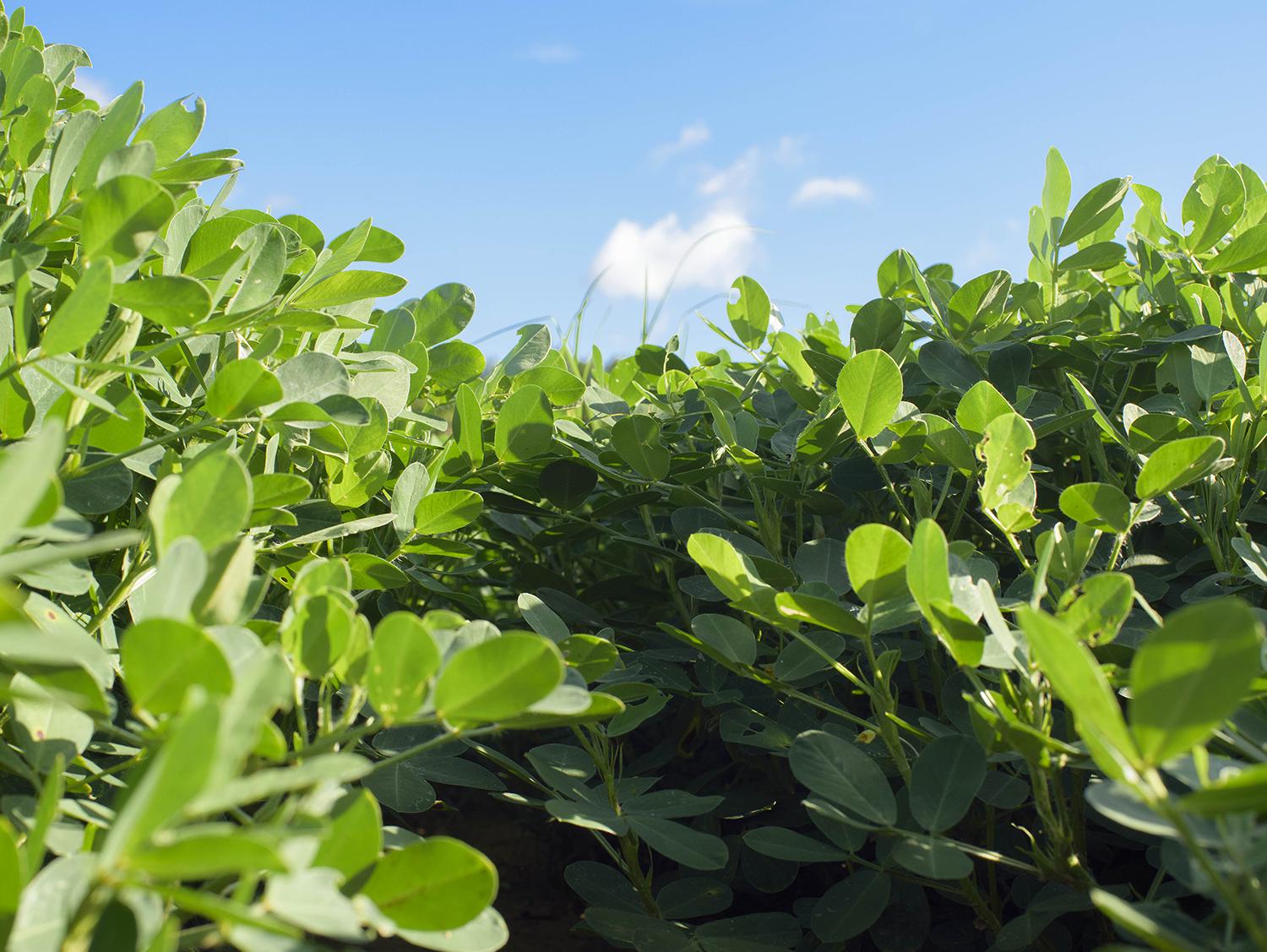Information Possibly Outdated
The information presented on this page was originally released on April 28, 2017. It may not be outdated, but please search our site for more current information. If you plan to quote or reference this information in a publication, please check with the Extension specialist or author before proceeding.
Strong market supports peanut acreage uptick
STARKVILLE, Miss. -- Many Mississippi peanut growers are just now planting this year's crop, but their acreage will likely be increased over the amount cultivated in recent years.
The U.S. Department of Agriculture projects 44,000 acres of peanuts will be planted this year, which would be a jump from 39,000 planted in 2016.
Jason Sarver, peanut specialist with the Mississippi State University Extension Service and a researcher with the Mississippi Agricultural and Forestry Experiment Station, said he believes the state’s peanut fields could approach 50,000 acres.
“I think a safe estimate would be 45,000 acres,” Sarver said. “We have hovered around 40,000 the last couple of years, but prices now are better than they were, and peanuts can come out ahead of other commodity crops economically in some years.”
Current wholesale prices nationwide are 19 cents per pound, or $380 per ton. Prices averaged 17 cents a pound a year ago, or $340 per ton. MSU Extension agricultural economist Brian Williams said contracts were going for $475 to $500 per ton as recently as two months ago.
“The outlook for peanut markets is relatively good when compared to other row crops.” Williams said. “The demand has been strong, and we don’t have anywhere close to the amount of stocks that we are seeing with crops such as corn and soybeans. I think the positive outlook for peanut markets is a big part of what has driven producers to plant more of them this year.”
The USDA Crop Progress and Condition Report estimated growers had planted 8 percent of their peanuts as of April 23. Generally, growers start planting as early as the first week of April or as late as the last week of May, depending on spring temperatures.
“In 2014, most planting didn’t start until May,” Sarver said. “There was some late April planting in 2015 and mid-April planting last year. This year, some growers had seeds in the ground as early as April 5.”
Bernard Jones, a producer in Holmes County, planted about 300 acres more than he has in recent years. He said he started planting April 12 and finished less than two weeks later.
“Planting went really well. We finished earlier than normal, and most of the first plantings were emerging in a week,” Jones said. “The rest we planted later are starting to crack the ground.”
Some growers prefer to begin planting in early April regardless of whether their soil is consistently reaching the optimum temperature of 68 degrees, Sarver said, because yields can be better with early plantings.
But yields can also be low or nonexistent if growers plant too early during a cool spring, necessitating an expensive replant.
“A lot of growers want to plant their corn, then their soybean and then peanuts regardless of soil temperature. I want to take a more cautious approach because we’ve had some stand issues in the past,” Sarver said. “Many producers are also making in-furrow applications with the seeds to protect the plants. If we plant that seed and it takes two weeks to fully emerge, that’s two weeks of protection from fungi and pests that we’ve lost.”
The expected national acreage for peanuts this year is 1.75 million acres, which is up 5 percent from last year’s 1.67 million acres.




